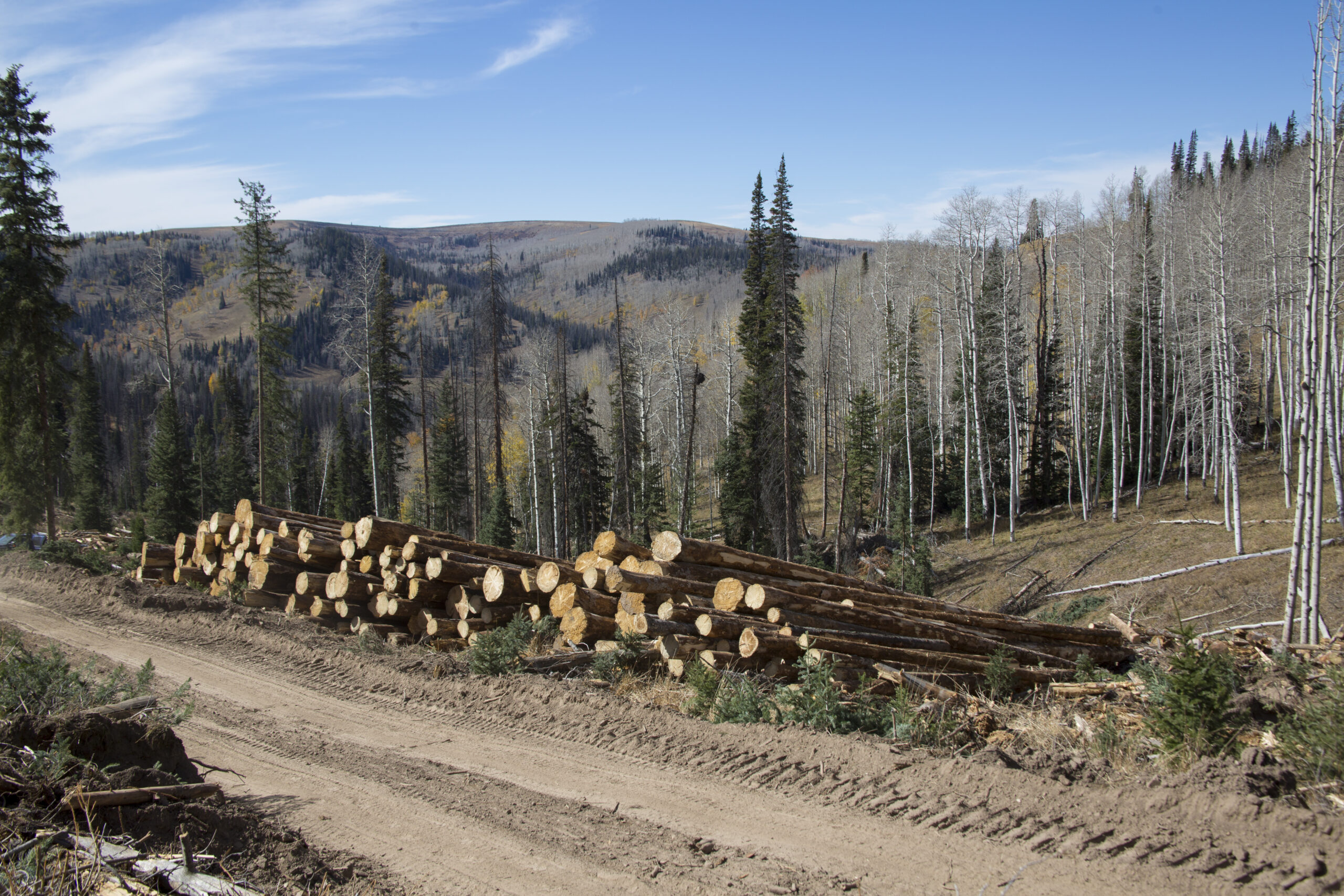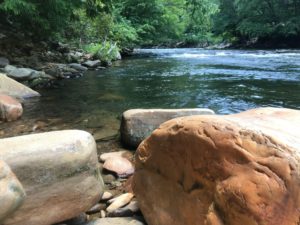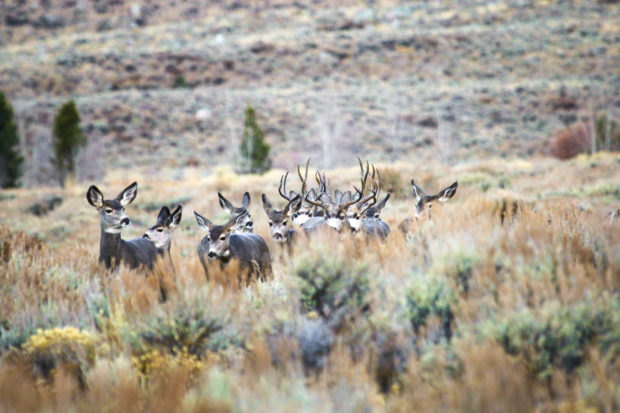Snowy Owls, Farm Bill in the Weekly News Roundup–February 7, 2014
The Polar Vortex Brings Rare Snowy Owl Sightings

Photo by National Wildlife Photo Contest entrant Brian Hansen.
“The sudden arrival of snowy owls up and down the East Coast and as far south as Florida is a surprise winter gift from North America’s northern realms, and people are flocking to airports, beaches and parking lots to see them. This ‘irruption’ as the ornithologists call it is one of the largest known migrations of snowy owls in U.S. history.”
The snowy owls surprise arrival serves as a significant reminder of the precious wildlife in the North that could be harmed by the proposed Keystone pipeline. Read Larry’s post about Snowy Owls to find out how the Keystone XL pipeline can compromise North American wildlife for generations to come.
What’s happening at National Wildlife Federation this week?
Sportsmen: Public land use must be balanced
Nov 5- As members of Congress tackle ways to manage our public lands, a national sportsmen’s coalition continues to urge lawmakers to strike a balance that permits responsible energy development while maintaining healthy fish, wildlife and habitat and allowing public input.
Speakers in a hearing of the House Subcommittee on Energy and Mineral Resources Wednesday objected to what they see as unnecessary regulation of drilling on public lands. Sportsmen for Responsible Energy Development supports a process that involves the public and provides certainty for everyone – the industry, public agencies, landowners and the millions of Americans who hunt, fish, recreate and make a living off public lands.
Take Action! Tell the Bureau of Land Management to protect the Roan Plateau’s crucial mule deer habitat from drilling.
Senate Passes Farm Bill that Locks in Key Benefits for Wildlife
Nov 4- The U.S. Senate today passed by a vote of 68-32 a new five-year farm bill that prioritizes the conservation of our nation’s wildlife, water and soil. The bill is expected to be signed into law by President Obama imminently, clearing the last hurdle in a drawn out battle that has taken more than two years.
Larry Schweiger, president and CEO of the National Wildlife Federation, said today:
“With so many competing interests, it is a huge victory for wildlife that the conservation of our nation’s natural resources was prioritized and included in the final bill. By re-linking conservation compliance to crop insurance, funding key conservation programs, and including a sodsaver provision in key states to protect grasslands, this bill will help wildlife from across our prairies to our oceans.
Read our full analysis of the bill (pdf) and our blog post for more information on how the bill helps wildlife.
NWF applauds sportsmen’s legislation
Nov 4- The National Wildlife Federation welcomes the announcement of a bipartisan legislative package in the Senate that would expand and enhance hunting, angling and other outdoor recreation on our public lands and help secure conservation funding for years to come.
The Bipartisan Sportsmen’s Act of 2014 prepared by Sens. Lisa Murkowski, R-Alaska, and Kay Hagan, D-N.C., and introduced Tuesday includes a provision to open currently inaccessible public lands to hunting and fishing. Another would give the Interior secretary permanent authority to permit states to issue electronic duck stamps, which generate vital funding for wetlands conservation.
“Hunters, anglers and outdoor enthusiasts of all sorts make up about half our 4 million members and supporters. The National Wildlife Federation was formed nearly 80 years ago after our founder, J.N. “Ding” Darling joined other sportsmen and wildlife conservationists to protect wildlife and invest in conservation,” said Larry Schweiger, president and CEO of the National Wildlife Federation.
Learn about how climate change is affecting hunters and anglers.
And now here are highlights from NWF in the news:
CNN’s Jonathan Mann speaks to Joshua Saks of National Wildlife Federation about the newly released Keystone Pipeline Report.
New York Times: Report Opens Way to Approval for Keystone Pipeline
Larry Schweiger, the president of the National Wildlife Federation, said: “This is a large source of carbon that’s going to be unleashed. We’re headed in a terribly wrong direction with this project, and I don’t see how that large increase in carbon is going to be offset.”
Washington Post: State Department IG won’t release Keystone XL report on a contractor Friday
“What about Canada’s own government or the oil industry, which has repeatedly said Keystone XL is needed to realize tar sands growth plans that Canada projects will cause its own carbon emissions to soar 38% by 2030? Or will State stand by the oil industry consultants it hired to write that first draft currently being investigated for conflicts of interest?”
MSNBC: Reactions to Keystone Pipeline Impact Report
“In this report, for the very first time, the State Department acknowledges a scenario in which the Keystone XL tar sands export pipeline dramatically increases carbon pollution. That’s a welcome and long overdue change, and it gives President Obama all the evidence he needs to reject Keystone XL.”
Science World Report: Is Climate Change Affecting Mental Health?
According to a report released by the National Wildlife Federation’s Climate Education Program and the Robert Wood Johnson Foundation in 2012, climate change-related events are expected to cause an increase in mental and social disorders. Such disorders include depression, anxiety, post-traumatic stress disorder, substance abuse, suicide and violence.
Washington Post: The farm bill is up for a final vote soon. Here’s why so many people hate it.
And hundreds of conservation groups, including the National Wildlife Federation and Nature Conservancy, favor the bill’s protections for water and soil.
Coloradoan.com: Colorado weighs need for new oil rules in flood’s wake
Colorado oil and gas regulators set a precedent on Thursday by hosting a public forum on lessons learned from oil spills caused by the September 2013 floods, said Colorado Oil and Gas Conservation Commission Director Matt Lepore.
The Herald: How to get kids (and their gadgets) outdoors
I have written tons about how to get kids to put down their gadgets and get outdoors. So I thought it was fascinating that the National Wildlife Federation has actually decided to embrace a new approach when it comes to kids and tech – get kids to go outside with their gadgets.
Kansas City Star: FEMA: Caught between climate change and Congress
Originally Posted on NWF.orgTwo leading environmental groups, the Natural Resources Defense Council and the National Wildlife Federation, have petitioned FEMA for more than a year to overhaul its disaster mitigation program, asking to require – not just suggest – that communities include climate impacts in their grant requests and strategic plans.








